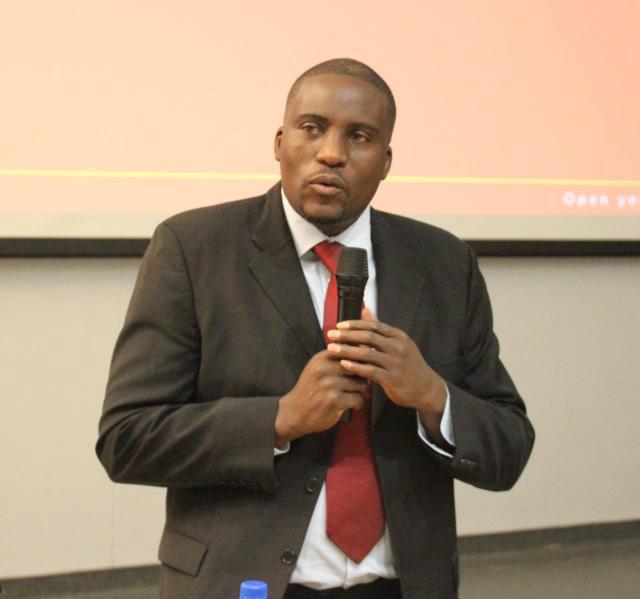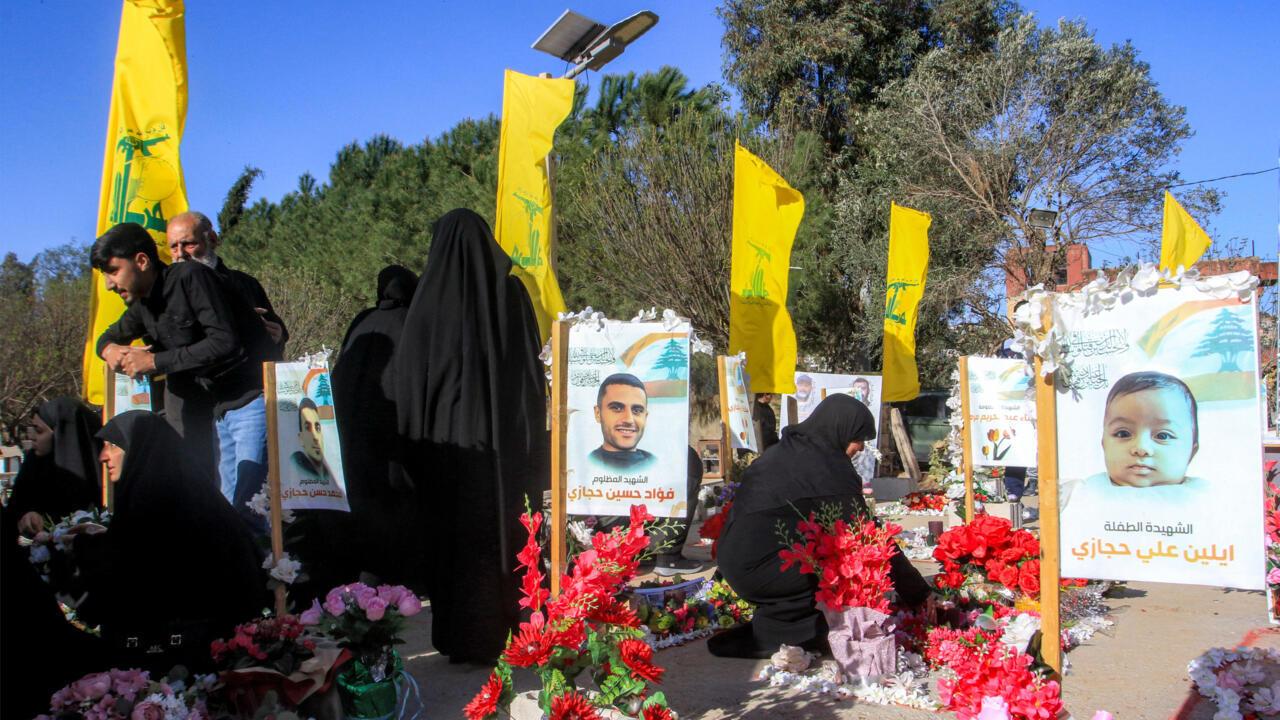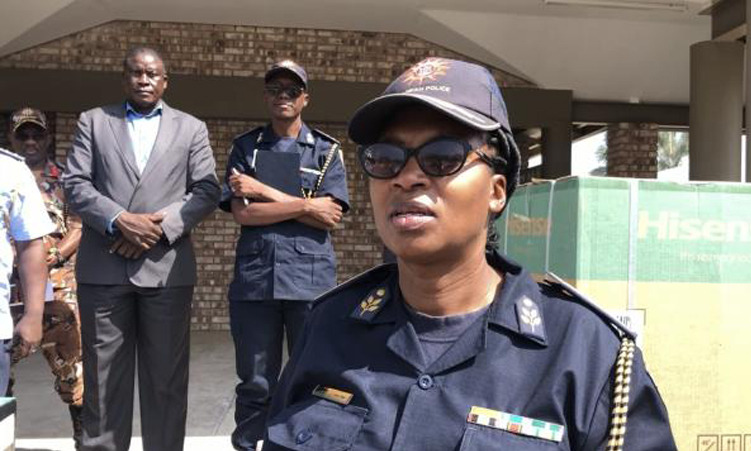Namibia withdrawing from the joint bid to host the 2027 African Cup of Nations (Afcon) tournament with Botswana has been described as a huge embarrassment for the country.
This comes after Namibia’s minister of sport, youth and national service, Agnes Tjongarero, wrote to her Botswana counterpart, citing drought and the N$4,8-billion price tag for infrastructure as among the reasons for Namibia abandoning the bid.
Popular Democratic Movement (PDM) member of parliament Maximilliant Katjimune yesterday accused the government of embarrassing the country by withdrawing from the joint bid.
“It is a total embarrassment for us as Namibians,” he said.
He said Namibians pinned their hopes on a successful joint bid to be afforded the opportunity to host such a spectacle and to improve the infrastructure of our sport facilities.
“But we were too naive and too hopeful that a broke country like Namibia could venture into such a huge project,” he said.
Katjimune last year questioned the sport minister’s decision to join the bid.
“What informed your decision to join this bid with Botswana knowing full well that we are under severe financial constraints and have an ailing football structure?” he asked.
National Unity Democratic Organisation (Nudo) parliamentarian Joseph Kauandenge said the Namibian government’s decision marks a sad day.
“It is indeed a sad day that because of government ineptitude, a lack of foresight and at best because of our misplaced priorities, we as a country stand to lose a one-time opportunity to host the Afcon with Botswana,” he said.
Kauandenge blasted the government for using drought as “an excuse” to withdraw.
“The government’s excuse of the looming drought is just a sorry excuse, something they are using to hide behind. Namibia is prone to drought, it’s nothing new. Why should they use it as an excuse?” he asked.
He asked why the president went all the way to Qatar to lobby for funds.
‘NO POLITICAL WILL’
“. . . if there was no political will from the word ‘go’? We now can forget about the renovations of Independence Stadium. This is a lost opportunity, and Namibia’s youth are on their own once again, and have been lied to and left dry,” he said.
Another PDM parliamentarian, Reggie Diergaardt, in the National Assembly in February probed Tjongarero in
parliament on the decision to join the Botswana and Namibia (BoNa) Afcon bid.
“Why is the minister always oblivious about the state of sport facilities in the country?” he asked.
He said in its current form local players are forced to go to South Africa for proper facilities.
“Due to the poor conditions of the stadiums, local sport continues to suffer because of the absence of quality facilities in the country,” he said.
AVOIDING ‘CATASTROPHE’
Tjongarero on Wednesday said the N$4,8-billion required for the upgrading of sport infrastructure was beyond the “budget threshold agreed originally”.
Namibia planned to host matches in Windhoek, and at Swakopmund and Oshakati, but will forego this ambition due to the severe drought situation in the country which is the government’s priority, the minister said.
“The Namibian government had to readjust, refocus and realign its financial priorities with the limited resources at our disposal to avoid a catastrophic economic situation,” she said.
She said Namibia would honour its outstanding payments for work done on the bid to date.
The joint bid to host the 36th edition of the continental showpiece sprung from bilateral talks between the neighbouring countries’ heads of state early last year.
When reaffirming their support for BoNa 2027 in June last year, presidents Hage Geingob and Mokgweetsi Masisi said the joint bid would unlock numerous opportunities for the two countries.
In December, Geingob went to watch the Fifa World Cup final in Qatar “to build relations and pave the way for Namibia and Botswana’s bid”.
Neither government responded to requests for updates on the issue yesterday.
Botswana Football Association’s Mfolo Mfolo said the matter was beyond their jurisdiction.
“I am not at liberty to respond to your questions, because the matter is being handled at government level,” he said.
One benefit to Namibia would have been new or refurbished stadiums.
At present, the country has no match venue fit to host international games, forcing national teams to play home matches in South Africa since 2021.
N$2,4M PER MATCH
Namibia spends about N$2,4 million per match on the Brave Warriors’ home matches in South Africa.
The sums paid for the Brave Gladiators and junior national teams for the same exercise is unknown, but it is said to be slightly smaller.
Meanwhile, work is yet to start on the upgrading of Independence Stadium in Windhoek, despite the Ministry of Finance and Public Enterprises reserving N$162,5 million for the project at the end of February. The sport ministry received N$50 million for the stadium’s refurbishment last year, but this has not commenced.
Last week, BoNa 2027 bid committee chairperson Ashford Mamelodi said the two countries’ “ambitious” coalition was not inferior to rival bids.
However, he also expressed concern over meeting the Confederation of African Football’s looming deadline to submit a comprehensive bid book by 23 May.
The 2027 Afcon hosts will be announced before September.
There is reported interest in the tournament from Senegal, Burkina Faso, Morocco and Zambia, with Kenya also considering putting in a bid to host the 2027 event.
Namibia has bitten off more than it can chew, as it has no infrastructural capacity to host an event of this magnitude, says veteran sport journalist Carlos Kambaekwa.
‘NON-STARTER’
“It was a non-starter from the word go. I’m still trying to put my finger on the pulse as to who’s to be blamed for this national embarrassment.
“How much went down the drain during this failed process, by the way? I’m yet to be convinced about the pitfalls of hosting such big gatherings in the absence of making improvements to existing facilities or building new stadiums,” Kambaekwa says.
Sport is not a priority for Namibia, says a disappointed sport lover from Kasane in Botswana.
“From my perspective, it’s bad because you can’t initiate something and then pull out while it’s almost being implemented. It’s a bad move for Namibia and the communities in the country,” he says.
“I’m not sure if Botswana on our own will be able to host the Afcon and have enough facilities.
“But maybe the government of Botswana will come up with other plans and initatives, or somehow host some of the games,” another Botswana national says.
Stay informed with The Namibian – your source for credible journalism. Get in-depth reporting and opinions for
only N$85 a month. Invest in journalism, invest in democracy –
Subscribe Now!










